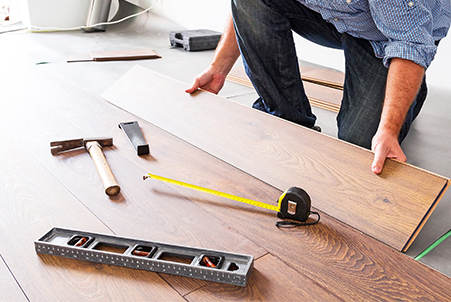There’s a reason homeownership is the cornerstone of the American Dream. It has tangible and intangible benefits. Owning a home provides economic opportunities that you may not be aware of. But, more importantly, owning a home comes with the benefit of growing equity in your home.
What’s “equity,” you ask? Good question. We’ll get into the details and relevant importance below, to help you better understand equity and its benefits.
What is Home Equity
Your home’s equity is the current market or appraised value of your home, minus what you owe on your mortgage. A real estate appraiser can give an official valuation of your home, but if you are looking for a rough estimate, you can compare your home’s value to recent home sales in your area. Whatever your equity amount is, you can increase it in several ways.
Tips For Building Equity
-
The easiest way to build home equity is to keep your home and not sell it. While markets fluctuate, home values generally tend to increase over time rather than decrease. As long as you pay your mortgage on time and do not add to the debt, your home equity will likely increase. Thus, we recommend staying in your home for at least five years if you want to see your equity increase.
-
Regular upkeep and maintaining the quality of your home will help gradually increase your equity. If you find yourself needing to sell your home quickly, your home should be market-ready when you need to list it. For example, fixing your floors instead of conceding to a flooring allowance may give you more in equity in the long run. Real estate professionals have a keen eye for what renovations or repairs may bring more value by handling upfront.
-
Taking a more proactive approach by improving your home can lead to a great return on investment and add to your home’s value each year. Replacing/repairing appliances, enhancing your home’s exterior, refinishing a basement, or updating other features like lighting and flooring could have a significant impact on your home’s market value and equity.
Can You Lose Equity?
Your equity can decrease if your home’s value drops at a rate faster than the speed at which you’re paying down your mortgage. It’s also possible to lose equity when property values in your area decrease overall. Another way to lose equity is to let your home slip into disrepair. If your home requires serious maintenance, your property value will decrease the longer the situation goes unresolved, taking your equity down with it.
Before your disrepair sits too long, it might be worth looking into a cash-out refinance or a second mortgage on your home to acquire the extra money to make the repairs.
Taking Equity Out
A large percentage of most peoples’ net worth is tied to the equity in their home. And you can take advantage of that equity in a number of ways that can benefit you financially. Some ways to take equity out of your home include home equity loans, home equity line of credit (HELOCs), or cash-out refinances. If you decide to take out a home equity loan, for example, those funds can be used to purchase anything from paying for college to a home renovation project that could have a high return on investment. The amount of equity you can take out of your home may vary depending on your lender, but most lenders allow you to borrow 80 to 85 percent of your home’s appraised value.
Besides getting to say you own your own home, equity is ultimately the long-term goal of homeownership. The more equity you have, the more financially flexible you’ll be when the time comes to sell, or when you’re ready to make a major renovation. It takes time and patience, but the more payments you make, and the more you invest in your home, the greater your equity will be.
Consult your Guardian Mortgage loan originator for details. Certain terms and restrictions apply. Program available only to qualified borrowers. Program subject to change without notice. Underwriting terms and conditions apply. Loan subject to credit review and approval. HomeStyle is a registered trademark of Fannie Mae. A payment reserve of up to six months PITIA is permitted when the borrower must vacate the property during renovation. The amount can be financed in the loan amount if the value will support such financing. The reserve is allowed only for the period in which the property is uninhabitable due to the renovations.

